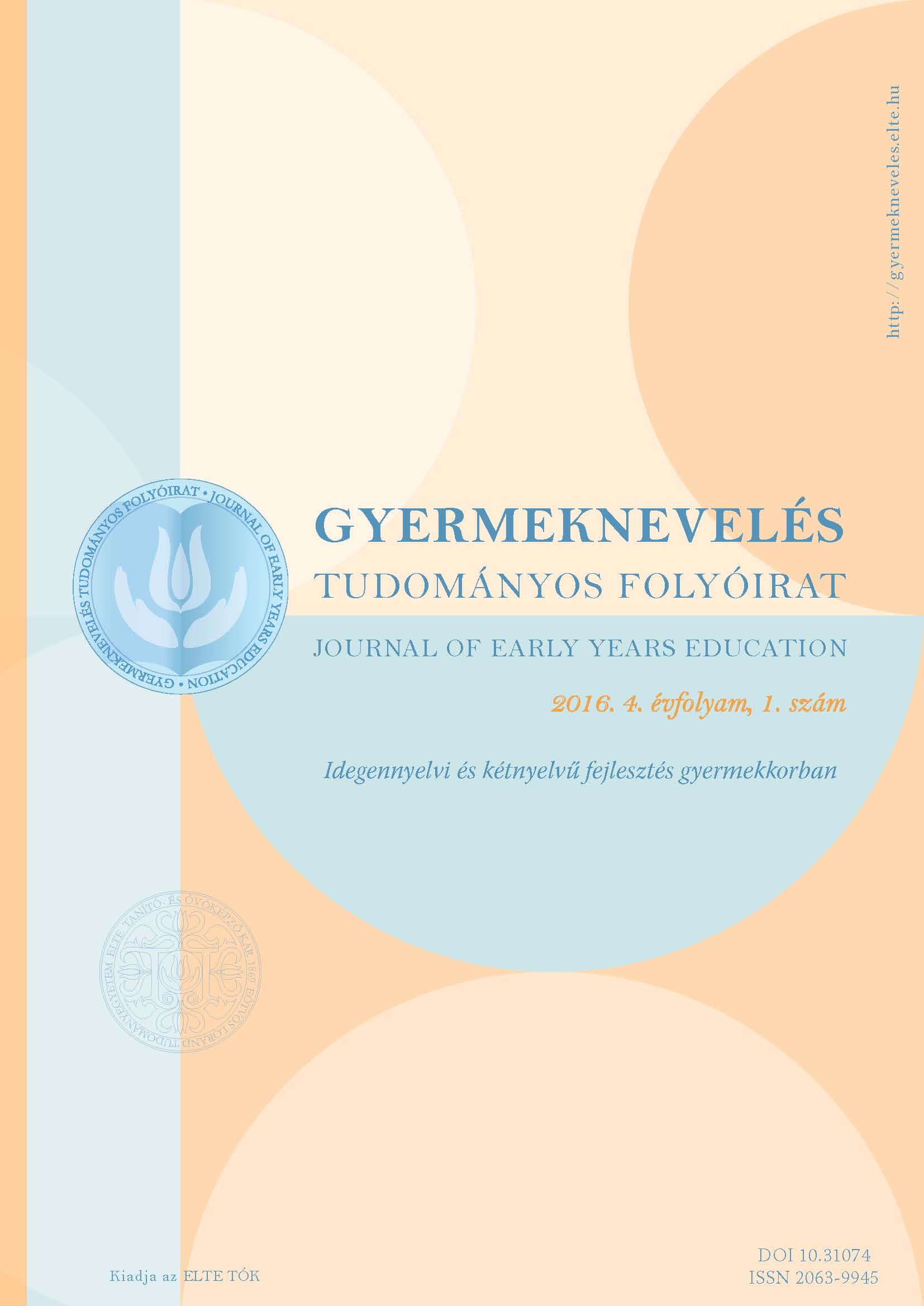A korai kéttannyelvű oktatás hatása a kisiskolások anyanyelvi szövegértési és helyesírási kompetenciájára
DOI:
https://doi.org/10.31074/gyntf.2016.1.55.64Keywords:
bilingual education, 2nd-form, native language, comprehension competence, orthographyAbstract
Many parents are concerned that their children participating in early bilingual education may not demonstrate appropriate native language comprehension and orthographic skills. Our study was conducted to investigate the aforementioned issue in a Hungarian–English bilingual primary-school in the North Great Plain in Hungary with two 2nd-form classes (N=59): the experimental group (N=34) taking part in the Hungarian–English bilingual programme, and the control group (N=25), who learn all their subjects in Hungarian. The research tool was a competence test specially designed for this study. The results show that our hypothesis has been justified, that is the 2nd-former lower-primary-school children’s native language comprehension and orthographic competences in the bilingual class are not weaker than that of their peers learning in the traditional monolingual Hungarian educational programme.
Downloads
Downloads
Published
How to Cite
Issue
Section
License
Copyright (c) 2016 Author

This work is licensed under a Creative Commons Attribution-NonCommercial-ShareAlike 4.0 International License.

